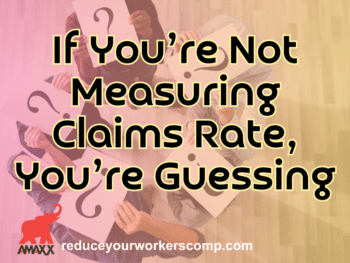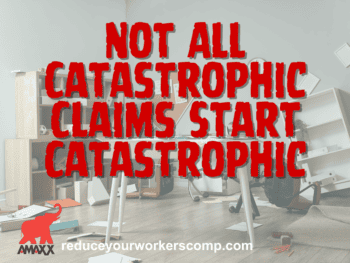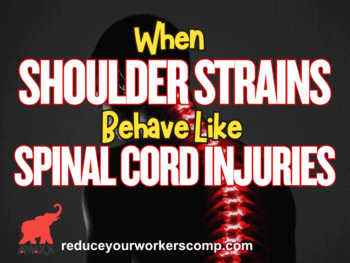It is important for claims management teams to make effective use of Functional Capacity Evaluations (FCE) in workers’ compensation cases. Failure to do so can result in losing control of your case.
What is a Functional Capacity Evaluation?
A Functional Capacity Evaluation (FCE) is a series of tests performed on an injured worker to determine their ability to perform work, assess work restrictions and evaluate fitness for return to work. In a standard FCE, the claimant is expected to give complete effort and cooperation and is part of the overall assessment. This can include requiring the party to perform a series of physical activities and perform various cognitive tests. Persons trained in vocational and rehabilitation sciences conduct the FCE. A specialist who conducts these tests can also work with other experts to evaluate an injured party’s workability.
Click Link to Access Free PDF Download
“How Do I Get My Adjusters To Follow My Account Handling Instructions?”
Preparing for an FCE
Due to the costs and limitations associated with an FCE, it is important to prepare for this event. This includes obtaining a complete set of medical and vocational records. This can include information on the claimant’s educational background and work experiences. Information used to prepare for an FCE can be obtained through discovery measures such as written interrogatories and depositions. The use of surveillance can also supply the examiner with the necessary information to conduct an evaluation.
The FCE Cover Letter
Prior to the FCE, the evaluator will typically request a cover letter from the party requesting the service. It is important for this letter to be factual and unbiased as it will be discoverable in an administrative or courtroom setting. This letter should also cover the areas finding and opinions within a reasonable degree of certainty from the evaluation. Some areas to consider and request opinion include:
- Assessment of effort exhibited by the claimant during the evaluation process;
- Consistency of effort and reliability of pain exhibited by the claimant during the evaluation process;
- Appropriateness of work restrictions for the employee based upon the evaluation;
- Recommendations regarding the employee’s ability to return to work, or comment regarding restrictions from the treating doctor;
- Development of a treatment plan for the employee’s future care; and
- Findings regarding the employee’s vocational status—mainly applicable when the employee is claiming to be permanently and totally disabled.
When to Conduct the FCE?
The scheduling of a FCE is an important factor. In most jurisdictions, there are no limitations on when a FCE can take place. As with anything in successfully defending a workers’ compensation claim, the timing of the evaluation is key.
Based on these factors, the FCE should typically be scheduled toward the end of the discovery process. This will allow the claim management team and defense attorneys to have as much information and documentation as possible. This information should be communicated with the expert who will perform the evaluation to avoid a scheduling issue.
It is also important to evaluate whether the vocational expert will need to give live testimony. In most instances, this testimony is given via a deposition and the transcript is entered into evidence. In other instances, the vocational expert will testify in-person at hearing.
Conclusions
The FCE is an important part of defending a workers’ compensation claim. There are a number of considerations that need to take place during this process in order to guarantee success for the claim.
Author Michael Stack, Principal, COMPClub, Amaxx LLC. He is an expert in workers compensation cost containment systems and helps employers reduce their work comp costs by 20% to 50%. He works as a consultant to large and mid-market clients, is co-author of Your Ultimate Guide To Mastering Workers Comp Costs, a comprehensive step-by-step manual of cost containment strategies based on hands-on field experience, and founder of COMPClub, an exclusive member training program on workers compensation cost containment best practices. Through these platforms he is in the trenches on a monthly basis working together with clients to implement and define best practices, which allows him to continuously be at the forefront of innovation and thought leadership in workers’ compensation cost containment. Contact: mstack@reduceyourworkerscomp.com.
©2015 Amaxx LLC. All rights reserved under International Copyright Law.
Do not use this information without independent verification. All state laws vary. You should consult with your insurance broker, attorney, or qualified professional.



























